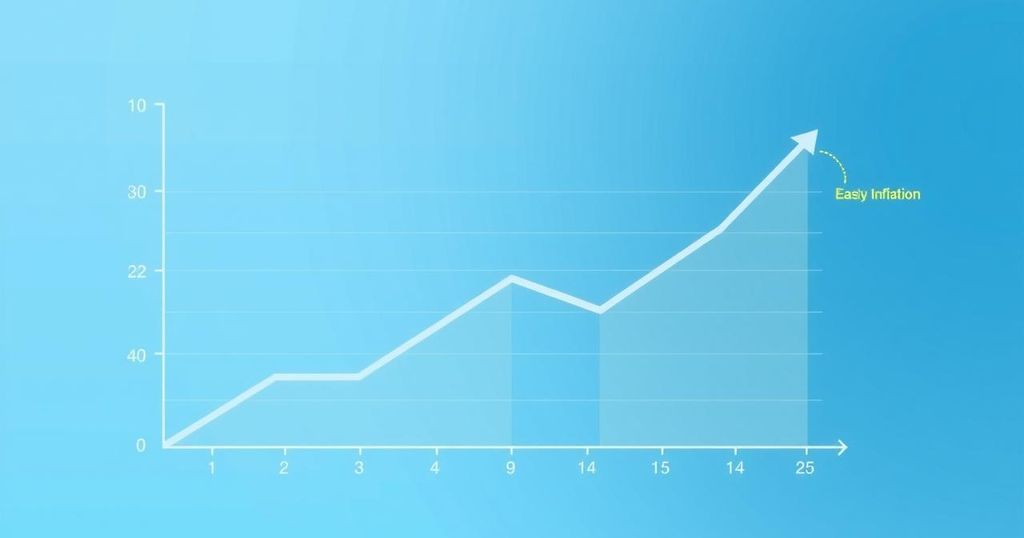Nigeria’s inflation rate dropped to 23.18% in February 2025 from 24.48% in January, marking an 8.52% decrease compared to February 2024. Food inflation is reported at 23.51%, down from 37.92% in the previous year. The decline reflects ongoing economic challenges despite government efforts to manage food prices.
In February 2025, Nigeria’s annual inflation rate decreased to 23.18%, down from 24.48% in January, according to the National Bureau of Statistics (NBS). This signified a reduction of 1.30% compared to January’s figures. Relative to February 2024, the inflation rate has dropped by 8.52%, showing improvement year-on-year, based on a different baseline set in November 2009, with the headline inflation standing at 2.04% month-on-month for February 2025.
Nigeria has been facing a significant rise in food prices, particularly exacerbated in 2023 following the removal of petrol subsidies and the adoption of a floating exchange rate for the naira by President Bola Tinubu. These economic shifts have resulted in increased staple food costs, deepening poverty and food insecurity among the populace. Many agricultural producers have responded by reducing outputs due to rising operational costs, insecurity, and variable climatic conditions affecting production areas.
In response to the worsening food situation, President Tinubu declared a state of emergency on food insecurity in July 2023. Despite implementing measures such as waiving duties on essential food imports, food inflation has persisted. Notably, the NBS reported annual inflation in January 2025 decreased to 24.48% from 34.80% in December 2024 post-rebasing.
The recent inflation report detailed contributions to the headline inflation index, highlighting substantial inputs from food and non-alcoholic beverages (9.28%), transport (2.47%), and housing, water, electricity, and fuel (1.95%). The average Consumer Price Index (CPI) rose by 30.09% over the twelve months leading to February 2025, representing an increase from 26.18% in February 2024.
As for food inflation, in February 2025, it was at 23.51%, which is a 14.41% reduction compared to 37.92% in February 2024. Yet, month-on-month food inflation was recorded at 1.67%. The NBS attributed this decline to adjustments in the base year, while highlighting decreases in prices for several food items during the period. The twelve-month average food inflation ending in February 2025 was 34.74%, noting a 4.67% rise from the previous year’s rates.
The recent data by the National Bureau of Statistics indicates a notable easing in Nigeria’s inflation rate, particularly with a significant year-on-year decline in food inflation. Despite measures to control rising food prices, challenges persist, including the impact of economic reforms and environmental factors affecting agriculture. Continued monitoring and adjustments will be crucial to ensure the stability of food prices and overall economic health in Nigeria moving forward.
Original Source: www.premiumtimesng.com






